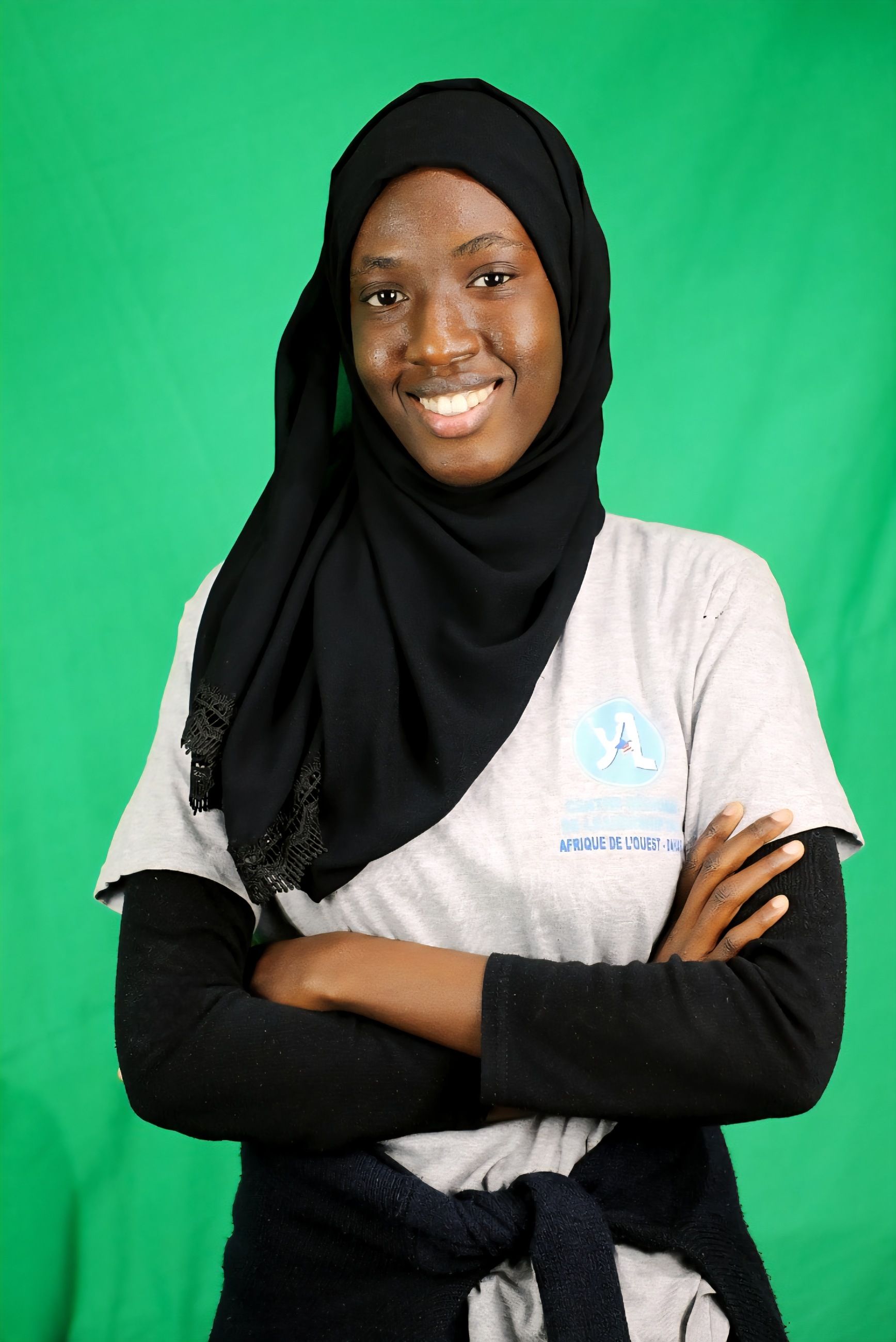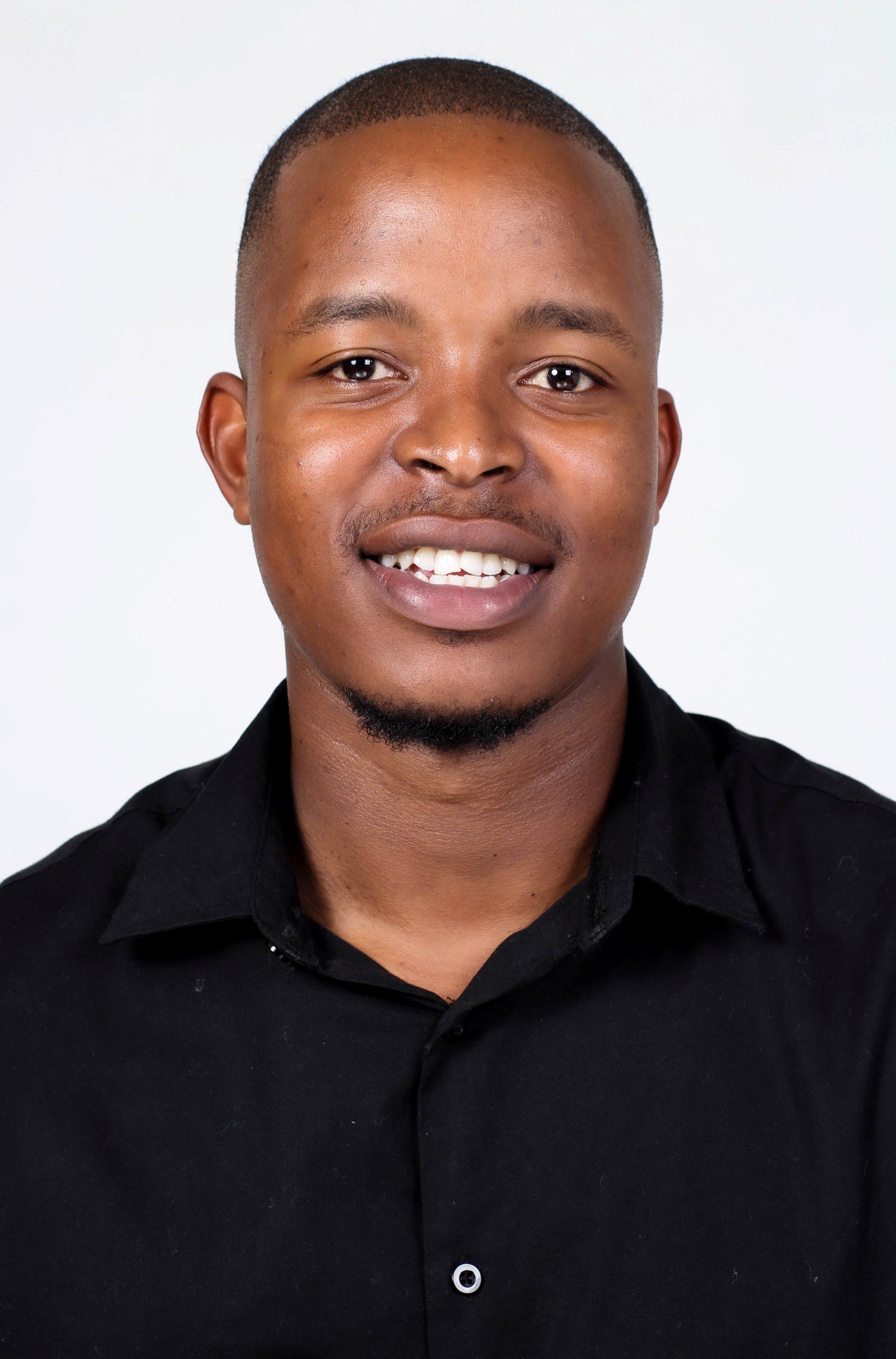He was always an inquisitive kid.
“Daddy, where are you taking that meat?”
“You know our traditions.”
“Yes, daddy.”
“And they are not to be questioned.”
“But what if I have questions?”
His daddy would sigh, suppressing a growing anger. But amongst the elders in this traditional homestead in the Kingdom of Eswatini, his dad was the only one who at least understood the boy.
Talkative. Spending time with adults, always asking them questions. Sometimes, these adults enjoyed pouring drops of wisdom into the boy’s life gourd. However, most of the time, like when he questioned traditional practices like the Kuphahla—a ceremony to venerate the ancestors—the adults edged closer and closer to anger.

But that’s just who he was: Chestersment Maphalala, the inquisitive boy.
Chester, the short form he goes by, wasn’t only inquisitive; he was also loud.
By the time he was in high school, his yapping outside their compound was on levels that irked neighbours. One such irked neighbour told him, “You are very loud and too talkative for a boy your age. You should become a broadcaster when you grow up.”
Whether this neighbour, a policewoman, meant her words as a compliment or scorn, only she knows. And God. God, who knew what He’d destined the boy to become.
***
The newspapers for toilet paper, and a new reading culture
Chester wanted to become an IT specialist. He went to primary school carrying that dream. While other boys were amused by cars, his amusement was in smartphones and their software.
However, he was forming another hobby: reading. His dad, who was a policeman, used to come home every weekend with a stack of last week’s newspapers. The policeman’s intention was for his family to use the newspapers as an alternative to tissue paper. To cut down on costs.
However, as soon as Chester saw his dad dump the newspapers on the table, he would stop whatever he was doing and happily go for them. He’d scour them all, reading and then rereading as quickly as he could before a member of the family picked them for their intended use.
His reading intensified years later at Emvimbeko High School, where his language teachers, specifically those of English, had noticed how the students’ literacy levels were diminishing with every setting sun. Their master plan: make these kids read every day and write down at least one new English word they’ve learnt.
Chester found himself checking books out of their library and reading them to find new words, learn their meaning, and record them in what his teachers called “the memory book”.
When I asked him over a Zoom call whether he enjoyed that, he answered no. “I was only doing it because the teachers required it of me.”
To manage this new culture that the teachers imposed on him, he devised a plan.
“I’d go for smaller storybooks with gripping tales, unlike academic content. Most of the time, I checked out books in the Pacesetter Series because they were small and I knew I could devour them in a shorter time, unlike bigger books.”
I asked him what other books he read apart from the Pacesetter Series, and his response came, “Mills and Boon, the romance novels.” He laughed, and I joined in, knowing I had my little secret with the Mills and Boon tiny romance novels back during my teenage years. I never told him about my experiences, though.
The unexpected from a bright mind
Chester passed the Junior Certificate (JC) Examination while in Form 2. This was an exam meant for kids a grade higher than he was. His dad, beaming with pride for the bright son who’d pulled stunning results, moved him to a private school in Mbabane, Eswatini, where a whole new world opened up for the inquisitive boy with a passion for IT.
He now had access to computers and WiFi. This solidified his dream, as he started learning how to design basic websites.
“Whoa!” he’d marvel, “I love this. This is what I want to do for a living after college!”
When Chester sat for his final examinations, the unexpected happened.

“I failed!” He told me. “And I did so by a huge margin.”
“What do you mean ‘by a huge margin’?”
“In Physical Sciences, for example, I scored a D. Maths was marked ‘ungraded’.”
Chester's dream of pursuing IT at the university level became like corrosive breath he’d breathe in once every while, searing his throat and leaving a big, hard knot. Which university would take in a guy with an ‘ungraded’ mark in Maths?
“Without Maths, forget a career in IT,” people told him.
But the inquisitive boy was still inside him. He urged him to do what he did best: ask. Ask life for one more chance.
Fate surprised him; he was sure he was done for
Chester approached his dad and requested that he pay the fees for him to take a bridge course in Maths. This time he’d ace it, he promised.
“My dad gave me the money, but another thought crossed my mind.” The thought this time wasn’t from the boy in him, but from the older Chester who’d been in a ring with Maths and tasted defeat in knock-out fashion, a punch too hard he couldn’t see his marks.
“I thought to myself, if I bridge and fight for a win this time, wouldn’t that same Maths be the nemesis awaiting me on the other side of the wall called university, wreathed in an IT course? Hell no.”
His sister, Selidercia Maphalala, advised him to apply for a teaching course, the same one she was pursuing at the university.
“I said, let’s go! I’m pursuing teaching, and with the grades I scraped, the government will sponsor me.”
When Chester picked the course selection form, three slots stared at him.
“I filled BA in Humanities as option one, and BA in Social Science as option two. Those, I knew, would make me a teacher. Not what I’d wanted, but not so bad either. I could teach and earn a decent living, and never have to deal with Maths.”
The lady he met at the admin desk glanced at his form and said she couldn’t accept it as it was. He had to fill in a third option for the form to be complete.
“But Madam, I don’t want to fill something then get selected for it. I just want to become a teacher.”
“Don’t worry about that,” she said. “Fill in something, and in case you are selected for it, you can always switch to what you want once you are in the system.”
Chester asked her for an idea, and the lady told him, “Just fill in anything, eeerrrhm, like Journalism.”

Journalism. That’s what Chester filled in as the third option. And months later, that’s what he was selected for.
The inquisitive boy whose daddy used to bring home newspapers, and the boy would read them from front to back. The boy who devoured Pacesetters and Mills and Boon books. The loud kid who was once told, “...you should become a broadcaster…”. The boy whom God knew the plans He had for. He’d been selected for a course in Journalism.
But in Chester’s mind, he was done for.
“At that time in Eswatini, we only had two government-owned radio stations, a Christian radio station, and two TV stations owned by people closely affiliated with the government. So it went without saying that if you pursued Journalism, you would never get employed. What were the odds when the cards were stacked against you?”
Joining the University of Eswatini
When Chester joined the University of Eswatini, he had no plans to switch to a teaching course. Selidercia had convinced him to try Journalism for just one semester, and if it didn’t tickle his fancy, he’d quit and switch. Since that would mean him forfeiting an entire year of government sponsorship, the government would only pay for 3 years of his new course. His sister promised she would pay for his final year.
“But after my first exam in the Journalism course,” Chester told me, “I decided instead of quitting, I’d finish my four years and then start a new course of my choice. My calculations told me that by the time I completed the Journalism course, I’d be twenty-one. Still young enough for another course.”
What Chester didn’t know was that a force higher than him had the wheel, steering him in a direction that showed up throughout his childhood, though in glimpses: Journalism.
When, as part of their training, Chester had to design a newspaper, he “obsessed” over the project.
“I went overboard because this project gave me access to computers and tools; software—my childhood passion—to help me design a newspaper. In addition, as part of my classwork, I was required to interview fellow students for written stories and radio and TV bulletins. I fell in love with the work, especially the design part. That was when I knew Journalism was what I wanted to sing to for the rest of my life.”
The genesis of Tertiary Hub
Most universities all over the world have a reputation for being breeding grounds for young political minds. Chester told me, “In Eswatini, it was in the Uni where you could challenge the government and get away with it. Out there, though, political sneer was a risky game to play.”
When Chester was a third-year student of Journalism, an ugly situation reared its head in Eswatini’s scene, pitting university students against the government. The funds from the government for students’ upkeep were repeatedly being delayed. But Chester told me this wasn’t unusual.
“It would happen. But this time, students chose to riot after empty promises from the government. They vandalised property, forcing the school to close for two weeks.”
Upon reopening, the same thing happened, like a bad song playing on loop: The government promises to pay. The government doesn’t pay. Students riot. School is closed for two weeks.
“It took a toll on us, especially on the quality of education we received,” Chester told me. “Little learning was taking place. When we were in session, this is how the situation was: A student would tell their landlord, ‘Hey, the government will pay our upkeep money, and I will pay my rent. Please have some patience.’ Because newspapers had covered the story of the delayed funds, the landlord would agree to wait a little longer. The next day, however, the newspapers would write that the government had finally paid the students. The student in question would still be unable to pay, and the landlord would take it as a cat-and-mouse game from an ill-mannered student. At some point, some students committed suicide due to the academic pressure of playing catch-up after weeks of no learning, or from the pressure of surviving without the student upkeep.”

The media, society’s watchdog
It was then that Chester recalled a lesson he’d learnt in class: The media is society’s watchdog.
It was clear that ordinary citizens weren’t receiving the factual news, because while papers reported that the government had paid students, the actual story was different. Many students still didn’t have their upkeep money.
“I was so vocal when it came to student matters. Some students would sometimes mistake me for a student union leader,” Chester told me, laughing. “I took it upon myself to reach out to mainstream journalists, a few of them, to tell them what was really going on.”
However, Chester’s brave move yielded no fruit.
“I’d tell them the issue, but the next day you’d read a watered-down version of it in the paper, like they were diluting the story to reduce the full relevance it deserved.”
What could he do? This was a problem that needed a solution.
“Students started telling me, ‘You are the Journalist. Our voice. What should we do?’”
Chester had neither money, a website, nor a stable internet connection to report the true stories on the ground. While on the verge of letting go, the voice of that inquisitive boy in him came, ‘Ask. It’s what you do best.’
He approached newspapers and asked for an opportunity to write stories. They referred him to the “Letter to the Editor” column. Here’s the thing about columns: they dictate the topics you can and cannot write about. Chester knew the editor would reject his write-ups. The alternative? Walk away. Who are you to demand a rare space in a newspaper to write what the paper isn’t willing to sell to its audience?
Chester scratched his head, determined to solve the problem. He decided to use what he had in hand.

The magic of WhatsApp groups
“I opened a WhatsApp group and then cold-messaged all my student contacts with a broadcast invite saying I was starting the space as part of my Journalism training, to share journalistic news and updates. I invited anyone who wanted to join.”
When Chester told me the decision he chose to lean on, in my heart, I wondered how that would work. A WhatsApp group? His next revelations, however, hit me like a bucket of cold water slapped on my face.
“After opening the group, Tertiary Hub, students started joining. Numbers kept rising. I then started sharing updates every three hours, with the last hour being 9 pm, where I would do a combined story of all the updates shared earlier on. Guess what? The first group filled up. It was the day I learned that WhatsApp has a limit on the number of members who can be in a group. It was two hundred and fifty-seven.”
I silently wondered whether that was still the limit, but kept my thoughts to myself.
Chester took my silence as a nod to proceed.
“I opened a second group, named it Tertiary Hub 2. But students kept joining, and you won’t believe it, we got to Tertiary Hub 120!”
True to Chester's words, I didn’t believe him. I asked in shock, “One hundred and twenty?”
“Yes, that’s right.”
In a strategic move, Chester pivoted to sharing updates on daily occurrences in the school. An example was the intervarsity games, bringing universities from Botswana and Lesotho to the University of Eswatini for sports competitions in 2020.
“We had an intervarsity games opening party planned, and it featured top artists across Southern Africa. These were juicy updates that members of my 120 WhatsApp groups needed.”
A virus from China, and the blowing up of Tertiary Hub
There was a fear looming over the University of Eswatini, though. Word was out that a deadly, highly contagious virus, COVID-19, had broken out in China and was quickly spreading throughout the world, wreaking havoc and leaving bodies piled up in its wake.
A few days before the intervarsity games opening party, the University of Eswatini announced closure due to the fear of COVID-19.
“We had feared that news of the spreading virus would affect the upcoming opening party. And our fears became a reality when it was announced that the university was closing. With that, I now had a fear of my own. My WhatsApp groups. I depended on the school staying open to get daily news updates. With the closure, my ‘news platform’ was affected. Once again, I pivoted, this time focusing on COVID news.”
I asked Chester how he managed to get COVID updates. “I had, while pursuing Journalism, made the acquaintance of the Minister for Health in Eswatini. When I told her what I was doing and what I needed, she agreed to provide me with information on what was going on. This meant I had news updates from the government’s angle.”
But then something happened that turned Tertiary Hub WhatsApp groups into something bigger. Through another connection Chester had made in the earlier years, a Parliamentarian, he got a good scoop. The first recorded COVID-19 death in Eswatini.
“The Parliamentarian gave me the scoop on one condition, that I hide him under a cloak of anonymity. Which I did. And when I pushed that update on my WhatsApp groups, it went viral. In a day, I would create ten new groups because everyone wanted to join. Strangers would call and tell me, ‘Please add me to the Corona group.’”
With the help of some student volunteers, Chester kept running the groups. With his gift for maintaining relationships, he had a wide network of sources telling him what was going on.
But so far, Chester wasn’t making any money from his efforts, until a man called him.
“He asked me to share a poster in the groups. Advertise him. I declined, because I wanted to have a pure source of information for people. Ads tend to dilute the objective.”
But the man insisted. Months later, Chester found himself making money from advertising clients.
He went on to lead his team in reporting news in Eswatini. One day, another mysterious man called him. He later introduced himself as Jabu Matsebula, the Secretary General of the Eswatini Editors Forum. He congratulated Chester and asked him to keep up the good work.

A source of information for the whole of Africa
“Months later, Jabu Matsebula emailed me an invite to a Media Literacy Workshop.”
God kept directing the steps of that inquisitive young boy who once upon a time wanted to become an IT specialist.
In 2021, Chester got into a USAID program for youths, which flew him to Rosebank, Johannesburg, and empowered him with digital and fact-checking skills. (USAID officially shut its operations in July 2025.)

“It was my first time flying,” he told me. “Sitting in that plane, high in the skies, I couldn’t believe that a WhatsApp group had taken me that high.”
In 2022, he travelled to Sandton, South Africa, for a Hackathon under the same USAID program that taught him digital skills. Chester won in the competition and leveraged the momentum to formally register Tertiary Hub as a news organisation. He also created the organisation’s website, but has yet to launch it.
In his words, “My mission is to provide a platform for young voices to be heard at the forefront of journalism. In the future, I want Tertiary Hub to be a source of information and voice for not only the Kingdom of Eswatini but the whole of Africa. Information is power, and as Africa rises, we need credible sources of information.”
In 2025, Chester was selected on merit for the Mandela Washington Fellowship for Young African Leaders. The Fellowship, sponsored by the US Department of State, placed him in the Business track at the University of Texas at Austin, where he completed and graduated from the Fellowship in July.
He is a father to a beautiful 2-year-old daughter. You can connect with him on LinkedIn.

***
This story is part of a series Lesalon Kasaine is writing, of the stories of select 2025 Mandela Washington Fellows. Read more about the Mandela Washington Fellowship for Young African Leaders, a program sponsored by the US Department of State. Lesalon was himself a MWF 2025 Fellow.





